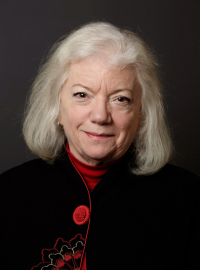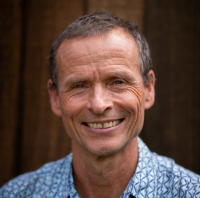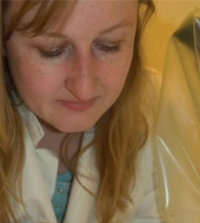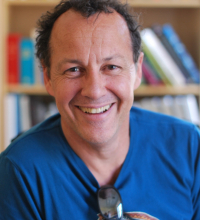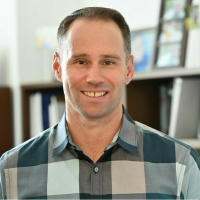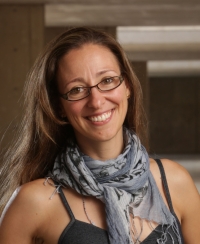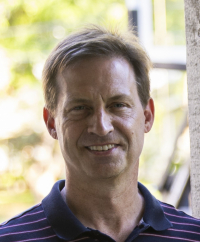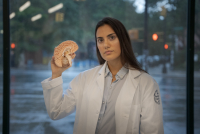The Origin of Love
Biographical Sketches: Co-Chairs
Indiana University; Department of Psychology, University of Virginia
Sue Carter, Ph.D. is currently a Distinguished Research Scientist and Rudy Professor Emerita of Biology at Indiana University and Professor of Psychology at the University of Virginia. She has held Professorships at the University of Illinois at Chicago, the University of Maryland, College Park (where she was a Distinguished University Professor), and the University of Illinois, Urbana-Champaign. Between 2014 and 2019 she was the Executive Director of the Kinsey Institute.
Dr. Carter’s research was integral to discovering the relationship between social behavior and oxytocin. Her current work in humans and other mammals examines the developmental and epigenetic consequences of oxytocin and the role of oxytocin pathways in selective sociality and the management of social isolation, stress and trauma. She was the first person to detect and define the endocrinology of social bonds through her research on the socially monogamous, prairie vole. These findings helped lay the foundation for ongoing studies of behavioral and developmental effects of oxytocin and vasopressin and a deeper appreciation for the biological importance of relationships and sociostasis in human health and wellbeing.
UC San Diego
Pascal Gagneux is CARTA's Executive Co-Director, a Professor of Pathology and Anthropology, and the Department Chair of Anthropology at UC San Diego. He is interested in the evolutionary mechanisms responsible for generating and maintaining primate molecular diversity. The Gagneux laboratory studies cell-surface molecules in closely related primates species. His focus is on glycans, the oligosaccharides attached to glycolipids and glycoproteins of the surfaces of every cell and also secreted into the extra-cellular matrix. Gagneux's laboratory is exploring the roles of molecular diversity in protecting populations from pathogens as well as potential consequences for reproductive compatibility. Dr. Gagneux’s interest is in how glycan evolution is shaped by constraints from endogenous biochemistry and exogenous, pathogen-mediated natural selection, but could also have consequences for sexual selection. Dr. Gagneux has studied the behavioral ecology of wild chimpanzees in the Taï Forest, Ivory Coast, population genetics of West African chimpanzees, and differences in sialic acid biology between humans and great apes with special consideration of their differing pathogen regimes. In 2011, while Associate Director of CARTA, Dr. Gagneux helped to establish a graduate specialization in Anthropogeny at UC San Diego. This wholly unique graduate specialization is offered through eight participating graduate programs in the social and natural sciences at UC San Diego.
Biographical Sketches: Speakers
UC Davis
Professor Bales studies the physiology, neurobiology and development of social bonding, particularly in monogamous species. She works with prairie voles (Microtus ochrogaster), titi monkeys (Plecturocebus cupreus), and seahorses (Hippocampus erectus), all species in which males and females form pair-bonds, and males provide pre- or post-natal care for infants. In particular, she is interested in the role of neuropeptides such as oxytocin and vasopressin in these behaviors, as well as the effects of early experiences on the development of these behaviors. Her current research (funded by NIMH) focuses on the role of the kappa opioid and oxytocin system in social buffering and separation.
In addition to her academic appointments in Psychology as well as Neurobiology, Physiology and Behavior, Karen Bales is the interim director of the California National Primate Research Center. She is a past president of the American Society of Primatologists and the editor-in-chief of the American Journal of Primatology.
Reichman University
Ruth Feldman, PhD is the Simms-Mann professor and director of the Center of Developmental, Social, and Relationship Neuroscience at Reichman University, Israel, directs the Irving B. Harris public clinic for young children and their families, and is an adjunct professor at Yale University Child Study Center. Her empirical research and theoretical models focus on the neurobiology of human attachments, processes of biobehavioral synchrony, and the biology of resilience. Her studies on the role of oxytocin, the parental brain, inter-brain synchrony, and the neuroscience of empathy have been instrumental in describing the biological basis of human social collaboration and widely published in the media. In several birth-to-adulthood studies she mapped the long-term effects of premature birth, maternal depression, and chronic trauma on brain and behavior and described the long-term effects of touch-based interventions on the adult brain. Her observational tools for analyzing social interactions are used in 33 countries and her dialogue-enhancing intervention for Israeli and Palestinian youth is the first to show long-term effects on brain and behavior in the context of intractable inter-group conflict. Dr. Feldman was named a highly-cited researcher (2018), World Expert in parenting research (2019), and Leader in Psychology (2024). She is the recipient of the 2018 Graven's Award for research on high-risk infants, the 2022 award of the Society of Reproductive and Infant Psychology, and the 2020 EMET prize, Israel's highest prize in the arts and sciences.
Yale University
I am a biological anthropologist with a general interest in understanding the evolution and maintenance of social systems. My main research interest is to examine the mechanisms that maintain pair-living, sexual monogamy and biparental care and the role that sexual selection may have had in the evolution of them. I am also motivated to study living primates as an approach to understanding the evolution of human behavior. I am particularly interested in male-female relationships, pair bonding and paternal care in humans and non-human primates. You can read more about my research program in the Owl Monkey Project Website
University of Notre Dame
Lee Gettler is the Reverend John A. O’Brien College Professor of Anthropology at Notre Dame, where he is the Department Chairperson and the director of the Hormones, Health, and Human Behavior Laboratory. Much of his early research focused on how men’s hormone physiology responds to major life transitions, such as marriage and fatherhood, and how men’s hormones relate to their behaviors as parents and partners. He draws on this work to help frame questions about the roles of human fathers in the evolutionary past. Working with collaborators at multiple global sites, he has expanded his focus to family systems and well being, including the psychobiology of motherhood and fatherhood, parents’ physical and mental health, and child growth, development, and physiology. Presently, Dr. Gettler works on research projects related to these interests in the United States, the Philippines, and the Republic of Congo. His work has been funded by the National Science Foundation and the Jacobs Foundation. In 2020, he received the Michael A. Little Early Career Award from the Human Biology Association, and he was recently recognized as a recipient of a Van Leer Fellowship.
University of California San Diego
Maria Carolina (Carol) Marchetto is an Assistant Professor at the Anthropology Department, UC San Diego, and serves on the CARTA Internal Advisory Board. Dr. Marchetto earned a BSc in Biological Sciences in 1998 and a Ph.D. in Microbiology in 2005 from the University of Sao Paulo, Brazil. Dr. Marchetto moved to San Diego in 2005 for her postdoctoral research in stem cells and neuroscience in the lab of Dr. Fred Gage at the Salk Institute. Prior to her appointment at UC San Diego, Dr. Marchetto was a Staff Scientist at the Laboratory of Genetics at The Salk Institute where she led projects that studied neuronal development using human and nonhuman primate stem cells. Her current work focuses on using patient-derived induced pluripotent stem cells to study the cellular behavior of human neurons in neuropsychiatric and neurodevelopmental conditions such as Autism and Bipolar Disorder. Dr. Marchetto’s work is also focused on human evolution in the context of human brain expansion and neuronal development. Her innovative approach uses stem cell models from human and nonhuman primate species to test hypotheses about the role of disruptions to human-specific cellular and molecular signatures in development and their potential impact on mental health. She is a BRAINS Program Fellow, and her work has received funding from the National Institutes of Mental Health and the Larry L. Hillblom Foundation.
Stanford University
Karen Parker is the Truong-Tan Broadcom Endowed Professor in the Department of Psychiatry and Behavioral Sciences at Stanford University, where she holds several departmental leadership positions. These include serving as Chair of the Major Laboratories Steering Committee and as Associate Chair for Research Strategy and Oversight. She also has a courtesy faculty appointment in Stanford’s Department of Comparative Medicine, and is an affiliate scientist at the California National Primate Research Center.
At Stanford, Parker directs the Social Neurosciences Research Program. They seek to advance understanding of the biological basis of social functioning across a range of species and to translate these fundamental insights to drive diagnostic and treatment advances for patients with social impairment. Their core research interests include: oxytocin and vasopressin signaling pathways, development of valid animal models for streamlined translation and clinical impact, and biomarker discovery and therapeutic testing in people on the autism spectrum.
Parker recently wrote an invited narrative review charting her scientific journey and detailing her personal and professional experiences in the field of social neuroscience. You can read it here.
Emory University
James K. Rilling is a Professor of Psychology at Emory University, with a secondary appointment in the Department of Psychiatry and Behavioral Sciences. Dr. Rilling uses brain imaging, genetics and endocrine assays to investigate the biological bases of human social cognition and behavior, with a current focus on caregiving in fathers, grandmothers and dementia caregivers. Much of his research is examining the role of oxytocin signaling in human social cognition and behavior. His latest book is Father Nature: The Science of Paternal Potential (The MIT Press, 2024)
Rockefeller University
Constantina Theofanopoulou is the Herbert and Nell Singer Research Assistant Professor at Rockefeller University, Research Associate at Emory University and the US Department of Veteran Affairs, and Visiting Scholar at New York University. Her research aims to understand the neural circuits of complex sensory-motor behaviors that serve social communication, specifically speech and dance, and to uncover effective drug and arts-based interventions for addressing sensory-motor deficits commonly seen in brain disorders, such as Parkinson’s Disease. For her Ph.D. (Universal Ph.D. title: University of Barcelona, Duke University, and Rockefeller University), she worked on the social reward mechanisms of vocal learning, studying the role of oxytocin in vocal learning in songbirds and in human evolution of sociality, in general. These projects led her to realize that the evolution of the oxytocin/vasotocin gene family was largely misunderstood, an issue that percolated down to an inconsistent gene nomenclature. Using computational genomic tools, she shed light on the evolutionary history of these genes and proposed a universal gene nomenclature. This work laid the foundations for her current clinical projects on testing the therapeutic role of oxytocin in speech and overall motor deficits.
Her scientific findings have garnered worldwide media attention (e.g., New York Times). She has received over 20 scientific awards for her research, including her selection as a Next Generation Leader by the Allen Institute, and her inclusion in the Forbes 30 Under 30 list in 2021. Dr. Theofanopoulou is also actively involved in disseminating science to non-scientists and supporting underrepresented minorities and women in science. Among her roles, she has served as a STEM mentor in the New York Academy of Sciences, a Council member of the Rockefeller Inclusive Science Initiative, and a Board member of the International Brain Research Organization’s Early Career Committee. Additionally, Constantina is a flamenco dancer, having performed in numerous solo and group shows worldwide; she has been awarded with the first flamenco prize by the Spanish Dance Society.
